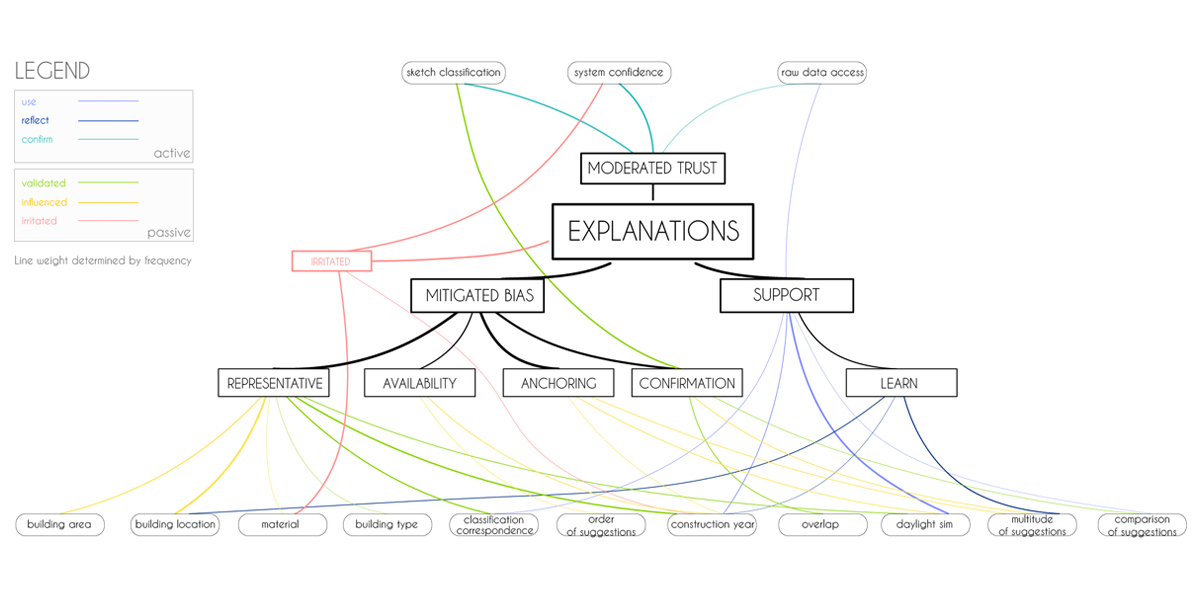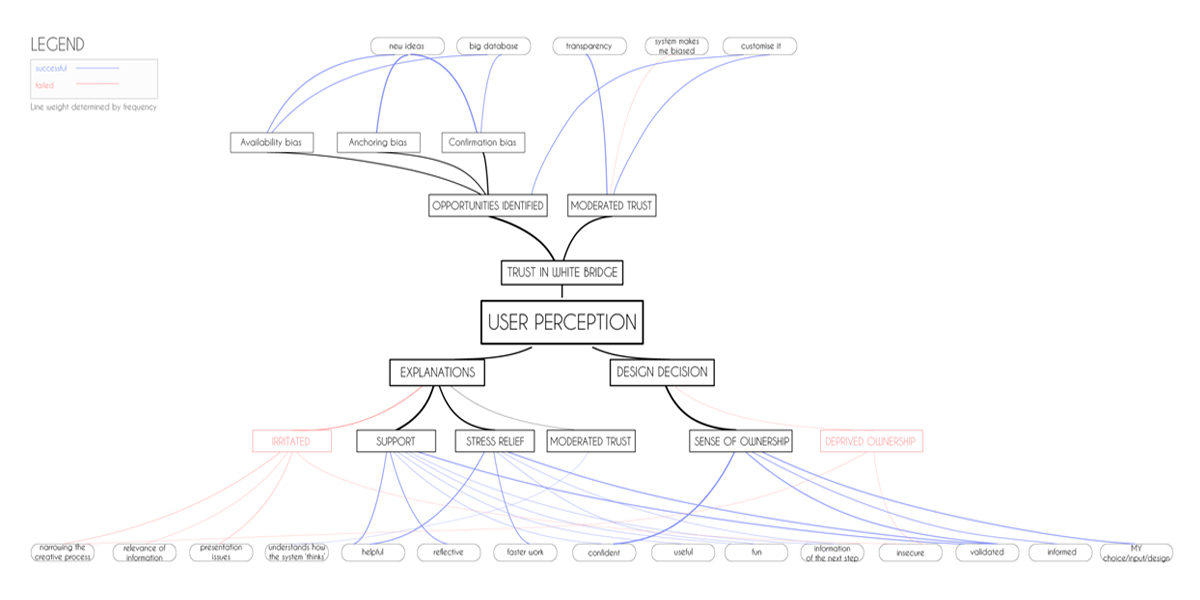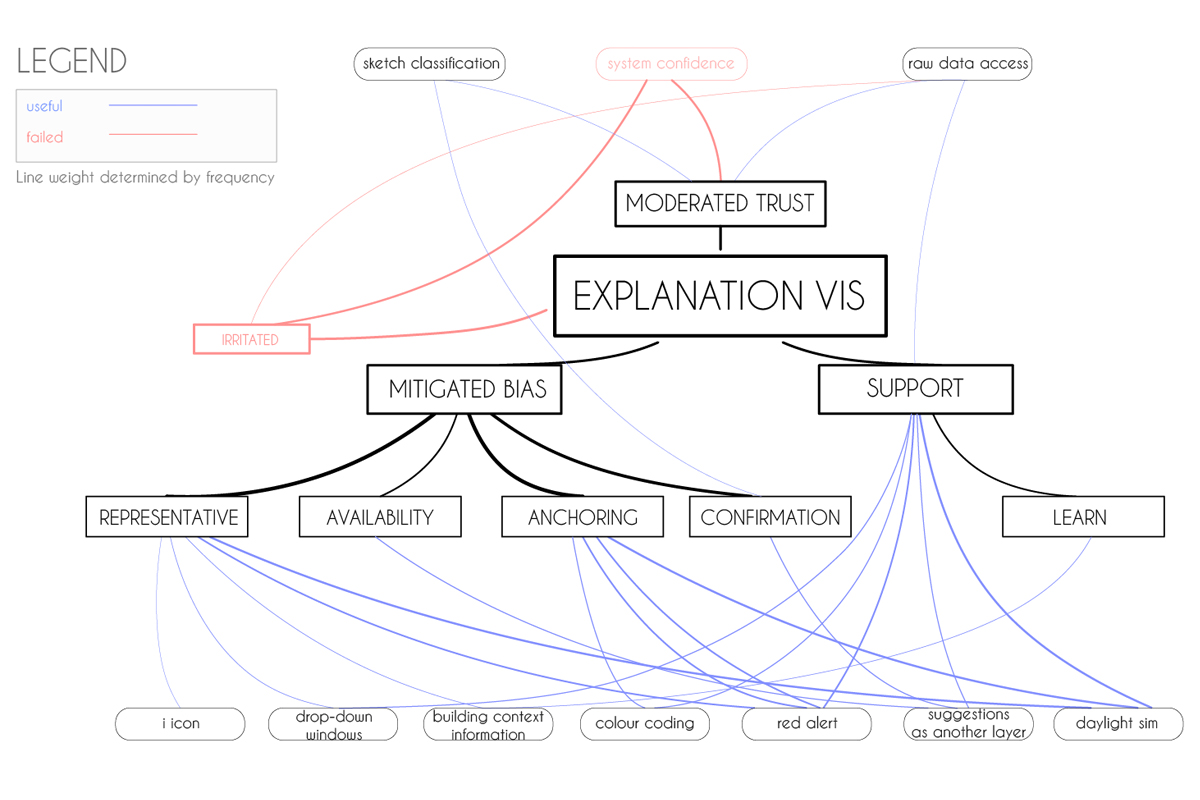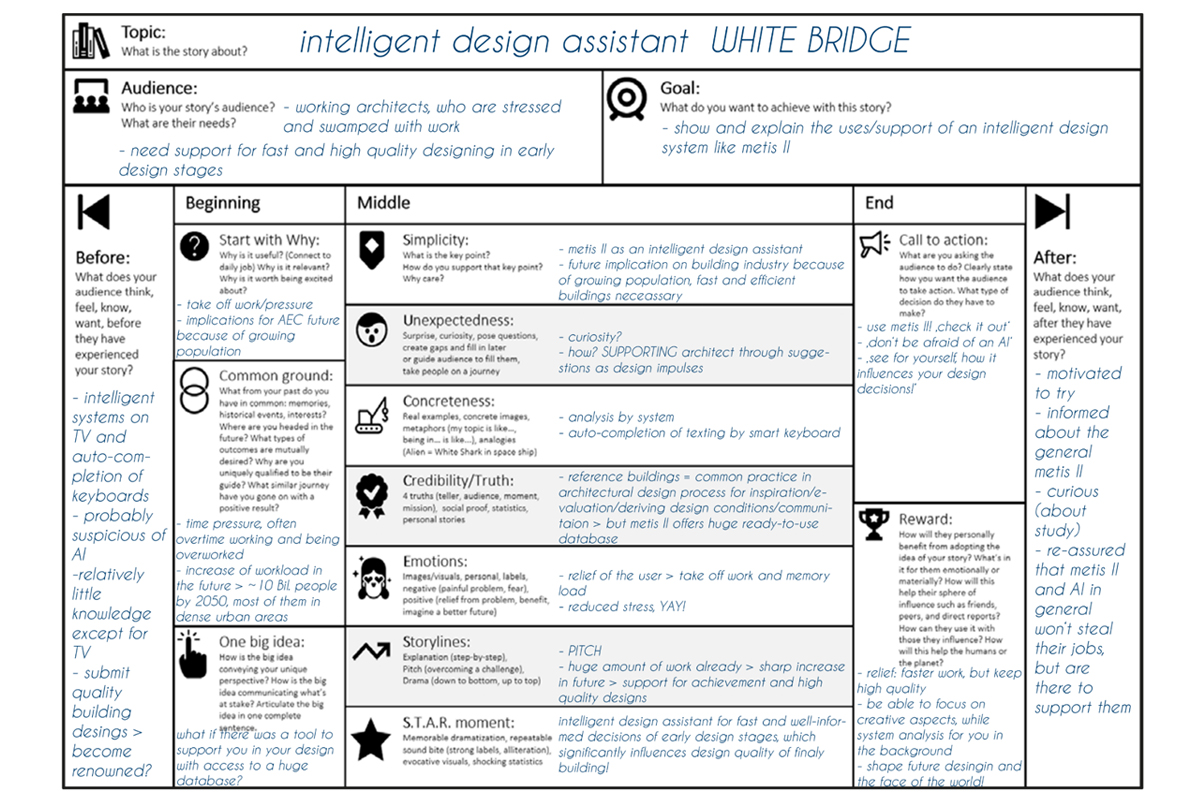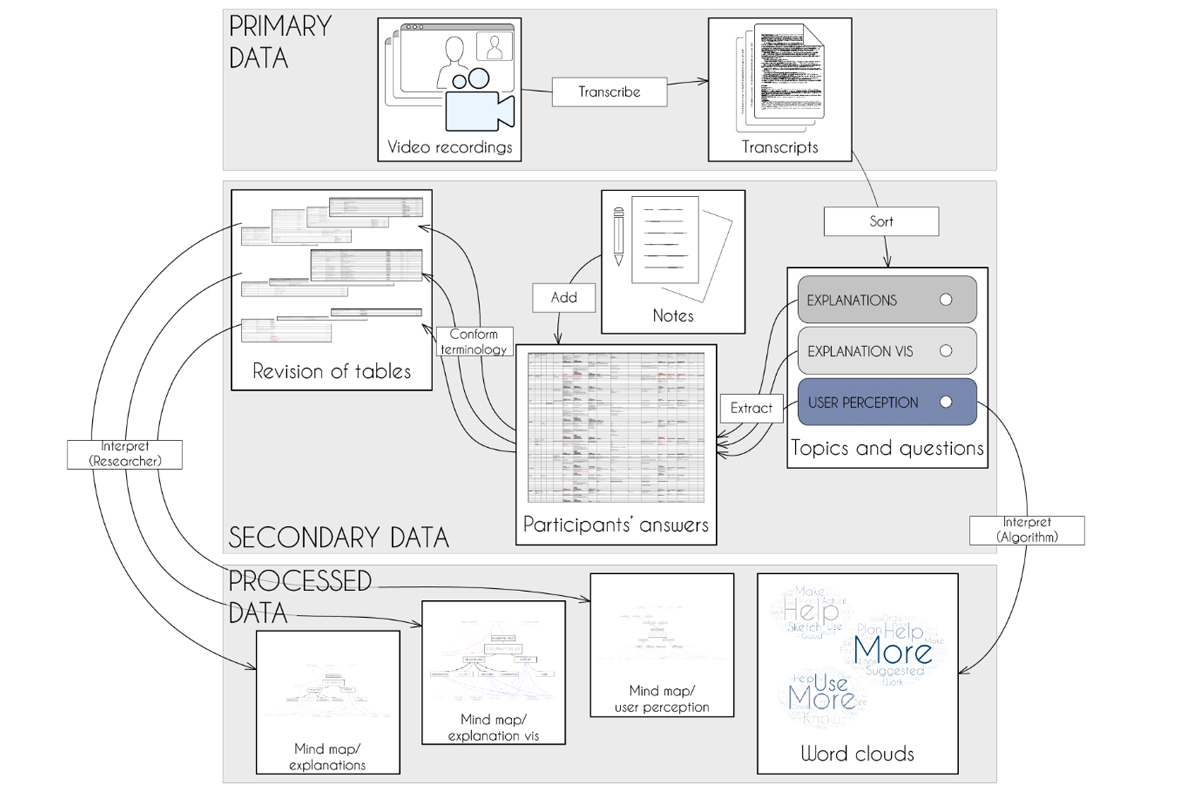Computational Aids for Architects for Early Design Phases
Jessica Bielski
Wintersemester 2020 / 21
The aim of this thesis is to explore if additional information can support architects in understanding suggestions of a hypothetical intelligent design assistant like WHITE BRIDGE and reduce the cognitive workload of design decision in early design stages. Furthermore, the influence of the representation of this information on the visually driven target group is examined through the mixed methodology of triangulation, derived from social sciences. The used triangulation consists of literature research and a user study. The theory-driven explanations and explanation visualizations are based on the framework of Wang et al. (2019), as well as a literature review of architects’ design decision making process, workflow and architectural quality assessment. The user study is conducted with working architects, utilizing a digital paper prototype created from the theoretical research.
